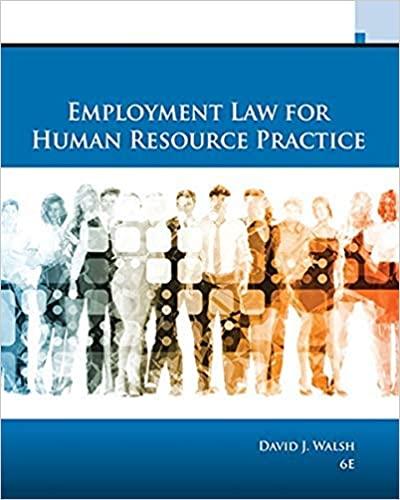Harrison was a customer service representative for Wells Fargo who was admitted to the Emergency Room on
Question:
Harrison was a customer service representative for Wells Fargo who was admitted to the Emergency Room on May 20, 2011, where it was discovered she had a large thyroid mass which would require surgery to remove. She applied for short term disability benefits, which were granted. At the time, she was also being treated for depression. Before the scheduled surgery, her husband unexpectedly died, and her depression worsened. At the time of the surgery, only part of the mass could be removed, and she was scheduled for further surgery. When she applied for benefits, she provided medical information, the names and phone numbers of all of her treating physicians, and medical releases. The day before the second surgery was to be performed, Liberty, the plan administrator, called for an update on her condition, and she advised again about the upcoming surgery, other injuries, and her treatment for depression. Despite this, Liberty concluded that she was no longer entitled to short term disability benefits. Harrison appealed the decision and submitted additional materials, including a letter from a doctor who said that she was unable to return to work. She asked to file another claim for short term disability and was told that she could not do so unless she returned to work, contrary to the terms of the Plan. On appeal, Liberty’s review of her claim was done without obtaining any additional medical records, and concluded that the medical evidence before them did not contain documentation substantiating her conditions. She filed a second-level appeal, submitting letters from her sister (her primary caregiver at this time) and herself. She also submitted additional medical records in support of her claim. The plan administrator’s review of these records inexplicably concluded that there was nothing to indicate she could not return to work, and the reviewing doctor, without contacting her treating physicians, concluded that she was fully recovered from her thyroidectomy and could return to work.
1. What was the legal issue in this case? What did the appeals court decide?
2. What benefit was denied to the plaintiff? On what grounds did the employer and its plan administrator (Liberty Life) deny this benefit?
3. What is the “abuse of discretion” standard in ERISA cases? Which factors does the court consider in deciding whether a plan administrator has abused his or her discretion in denying a benefit claim?
4. Why does the court conclude that the relevant decision makers abused their discretion in this case? What should they have done differently?
Step by Step Answer:






